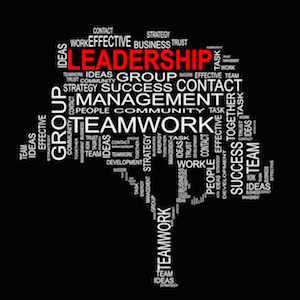Where Style Meets Substance
The most successful managers take a vision and turn it into reality. But you can’t begin the work if you don’t know what the final objective looks like. It’s in this planning stage that your vision and tenacity as a top-level executive are most crucial. Effective senior managers are strategic thinkers who keep the company goals and mission foremost at all times.
You invest time in learning your business. You keep yourself aligned with the company objectives. You also align your employees with those goals to keep everyone moving in the same direction. Your exemplary planning and organizational skills will serve you well when you employ a management style that maintains control with a soft touch and an open mind.
Pieces in Motion
To make decisive moves, to hire the most effective management team and to grow the company’s bottom line, you must become a master organizer. No management style can thrive in chaos; it requires order. And even though top-level managers typically rely on a support staff to keep appointments, set meetings and prioritize activities, it’s up to you to be organized.
With thoughts clear and focused, you will move through the day with specific targets and know when it’s time to pull the trigger on a decision, move into position to prepare for change, or slow down, relax and wait.
Leading by Example

Most top-tier managers possess an entrepreneurial spirit and take responsibility for the company’s performance. The proverbial “buck” should stop with you, no matter what kind of management style you employ.
It’s well known that an organization takes on the personality of its leadership. Successful leaders understand that what they do is more important than what they say. To secure the trust of your staff and set a positive example, you should remain even-tempered. Really listen to mid-level and front-line managers and respect their time. And if you say you have an “open-door policy,” make sure your door really does stay open.
When the top-level managers are honest, they tend to groom an honest workforce. An effective management style that breeds loyalty is one that does not play favorites. Consistency, even-temperedness and approachability are far more effective as management tools than flying off the handle, running from conflict or feeling threatened by questioning employees.
Decisions, Decisions, Decisions
Managers are called on throughout the day to make decisions. It’s the primary role of the position and takes on a very different tenor depending upon the management style of the leadership.
Some managers rely on mounds of data they ponder over for days before making a decision. Others prefer to employ a management style that calls for quick, decisive action. Many successful executive managers are more flexible and choose a course of action quickly, and just as easily change tracks when necessary.
No matter what management style you use, the results are what matter the most. As you move through the ranks and enjoy greater responsibility with each promotion, your style may tend to change and mature. As you move further away from the front-line activities of the company, you must rely on your employees to keep you informed. You must keep an open mind and have a clear, unobstructed pipeline to vital information. This is crucial for top-level decision-making.
Hire the Best
You have to rely on the people you manage as much as your own intuition. You must be ready to change when the need arises. A management style that encourages personal and professional development is vital to a thriving business. Advertising mogul David Ogilvy said it succinctly when asked about one of the most important roles for a top executive.
“Hire people who are better than you are, then leave them to get on with it.” ~ David Ogilvy
The pyramid layers of managers within a large company form a hierarchy upon which the success of the business rests. It’s this layer of management styles that should align to create the most productive and inviting environment for everyone in the company.
Top Down and Bottom Up

Front-line managers are the supervisors who have their fingers on the pulse of the daily operations. Front-line managers also play a critical role in how employees relate to the entire pyramid of upper management. They interact with the employees who build the products or carry out the services. Front-line managers with exceptional communication skills and an open, honest management style will smooth the path for important items to reach the decision-makers.
In larger companies, middle managers serve as the conduit between the front-line managers and the top-tier executives. Middle managers wear a number of hats, many within the same day. Middle managers often aspire to join the top-level team and will adopt the management style of those to whom they report to build strong relationships and fit in with the big puzzle of company culture.
Honing the Right Management Style Skills
You may develop a management style based on your experience and personality. You may have reached the top-tier management levels by moving up through the company, as a front-line and middle manager. You may have been groomed for the role right out of business school.
Either way, you will learn how to be flexible when you hone a range of skills that make you suitable for the positions you hold: interpersonal, technical, political, diagnostic and conceptual skills.
- Interpersonal skills are vital for managers at every level. Being able to communicate with the people who work within the company leads to success. External relations often rely solely on your ability to communicate well with customers, people in the community, investors, and the press.
- Technical skills allow you to keep up with the organizational aspects of the decision-making processes. Front-line managers rely on technical skills to engage in the actual workplace activities, while middle managers use their technical skills to oversee operations and create plans. Upper level managers need technical skills to evaluate complicated financial workings of the business.
- Political skills are required to maintain a position of power. You must be able to maintain control and diffuse situations. Political savvy is useful for dealing with vendors, competitors, government regulators and company shareholders.
- Diagnostic skills are especially important for managers who need to know how to research a problem and come up with solutions. Front-line managers deal with personnel issues they must diagnose and correct while upper management deals more with company-wide corrective issues.
- Conceptual skills are tantamount for top-level managers who need to be able to see the completed puzzle before they can put the pieces in the correct positions. It’s the big-picture thinkers who stand out and make progress.
Management Styles that Merit Substance

The road to top-tier management often is paved with a continuing round of promotions within a company. Sometimes, education and advanced degrees open doors. Ultimately though, successful executive leadership finds its niche due to a management style based on:
- Respect
- Results
- Vision
- Strategy
Add a healthy dose of self-confidence and a keen ability to choose winners to round out the management team and you’ve got the makings of a top-tier executive. Choose your management style and be the visionary you were born to be.


